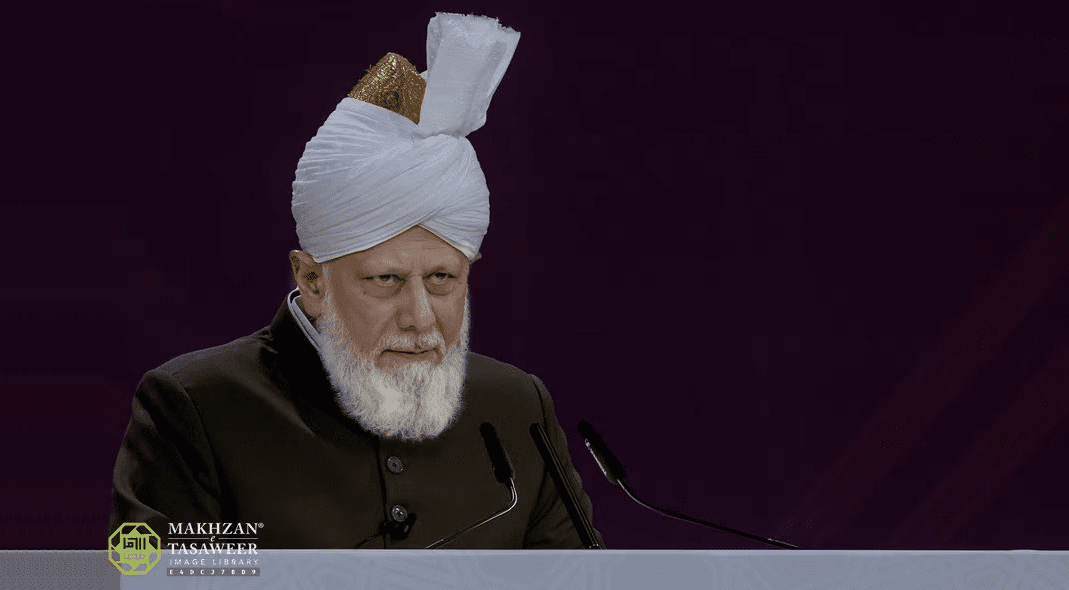Taqiyya, a term unknown to 99% of Muslims has now become the tool of Islamophobes to evade intelligent debate by labelling all Muslims as liars.
AMIR AZIZ AHMEDI, KOLKATA
NOVEMBER 30, 2020
In contemporary times, we have observed a gigantic upsurge in senseless criticisms hurled at Islam and its teachings. Undoubtedly, Islam wholeheartedly welcomes open discourse on any subject related to it and presents itself to the scrutiny of human intellect.
But unfortunately, rather than truthfully examining the Islamic doctrines in the light of human moral standards, opponents of Islam are more inclined towards beguiling commoners into a false apprehension of Islam by attributing views to it that are alien to it, or by unjustly misrepresenting its ideologies.
Among the various erroneously interpreted terms attributed to Islamic teachings, one of the most talked-about these days is Taqiyya, which they presume to be treachery and deception employed by Muslims to further the cause of Islam.
But, does Islam really permit its followers to resort to falsehood under any circumstances? A fair investigator would surely be able to reach the right conclusion if a just review is done to unravel the facts and separate it from fiction and innovation, an objective we intend to undertake through this treatise.
Meaning of Taqiyya
Let us evaluate the word etymologically to derive the correct conclusion. The word Taqiyya or Taqiyyah is a derivative of the trilateral root word waqaa and denotes caution, fear or prudence.
The word shares the same root with Taqwa, which stands for piety and rectitude for the love and fear of God. According to the Second Edition of Encyclopedia of Islam, it can synonymously be used with Taqwa.
As there are separate terms for specific moral qualities, in Islamic idioms, Taqwa is the word used as an umbrella term to denote morality and piety as a whole, which means to guard against all kinds of evil and to progress in all ways of goodness.
Hence, it is ironic that the word, which etymologically denotes righteousness and moral excellence, is misrepresented as a doctrine that is based on deception.
But, as the meaning of the word itself reveals, this is nothing other than a deliberate misinterpretation done by some miscreants to incite hatred against Muslims.
“Cautiously guard against them”
The propagandists often cite the following verse to base their claim that Islam exhorts its followers to employ deception as a means to gain supremacy.
Let not the believers take disbelievers for friends in preference to believers — and whoever does that has no connection with Allah — except that you cautiously guard against them. And Allah cautions you against His punishment; and to Allah is the returning.[1]
The verse, they allege, forbids Muslims from befriending non-Muslims under any circumstance whatsoever. However, it is permissible to show cordiality towards them outwardly while harbouring animosity against them on the inside.
A fair-minded person can easily spot the misinterpretation of the words in the verse, and the fact that it has got nothing to do with treachery or falsehood. The verse only exhorts Muslims to be cautious of enemies’ plans.
A righteous individual is always encouraged to guard against the evil and conniving of such people who extend companionship with a wrong motive, i.e. spying or creating dissension through various stratagems as was the case in the early Islamic period. The context of the above verse hinges on the same.
Befriending non-Muslims
The basis of the allegation is that the Holy Quran does not approve of Muslims to befriend non-Muslims in any case, except for what has been mentioned above. If this premise is proved to be wrong, the allegation becomes baseless.
Regarding befriending non-Muslims, the Holy Quran makes this unambiguous statement:
Allah forbids you not, respecting those who have not fought against you on account of your religion, and who have not driven you forth from your homes, that you be kind to them and act equitably towards them; surely Allah loves those who are equitable.
Allah only forbids you, respecting those who have fought against you on account of your religion, and have driven you out of your homes, and have helped others in driving you out, that you make friends of them, and whosoever makes friends of them — it is these that are the transgressors.[2]
Any impartial reader can easily decipher the injunctions laid out in the above verses. They shatter the misconception that Muslims are not allowed to befriend non-Muslims. On the contrary, they are instructed to treat them kindly and equitably.
Those who are forced
Another verse from the Holy Quran that comes into the purview is the 107th verse from chapter 16.
Whoso disbelieves in Allah after he has believed — save him who is forced thereto while his heart finds peace in the faith — but such as open their breasts to disbelief, on them is Allah’s wrath; and they shall have a severe punishment.[3]
It is clear that the above verse does not provide any license whatsoever to fabricate and forge lies under any circumstances. In the words “who is forced thereto”, an allowance has been hinted at pertaining to an extreme situation of relentless persecution but complemented with stringent conditions in the succeeding verses.
Then, surely, thy Lord — to those who fled their homes after they had been persecuted and then struggled hard in the cause of Allah and remained steadfast — aye, surely, after that thy Lord is Most Forgiving, Merciful.[4]
This categorically puts to rest any doubts about those recanting their faith under extreme torture and compulsion. As one can find, it is not an encouragement to give up one’s faith, rather just a last resort for those with a lesser degree of faith who cannot bear the pain of torture to death. Since the Holy Quran is the most comprehensive and perfected code for humanity, it accommodates all categories of believers.
Taqiyya is not a tool to spread Islam
The orientalist Stefan Wimmer says that Taqiyya is not a tool to deceive non-Muslims and spread Islam, but instead, a defensive mechanism to save one’s life when it is in great danger. He gives the example of the Reconquista in this regard.[5]
In Fath al-Bari, a commentary on Sahih Bukhari, we find the following observation:
There is a consensus that whomsoever is forced into apostasy and chooses death has a greater reward than a person who takes the license (to deny one’s faith under duress), but if a person is being forced to eat pork or drink wine, then they should do that (instead of choosing death).
The judgement is reserved for such people mentioned in verse 107 of chapter 16 and they are supposed to migrate to another place to protect their life and faith and spend the rest of their lives striving in the cause of God and spreading His message in order to qualify for God’s forgiveness and mercy.
Islamic standard of truthfulness
The Islamic standard of truthfulness is so high that it would be unjust as well as irrational to allege that Islam allows its followers to consort to even the slightest degree of falsehood under any circumstances.
Here, I quote a few verses from the Holy Quran to provide a glimpse of the actual Quranic commandment on truth and integrity.
O ye who believe! fear Allah and be with the truthful.[6]
And shun all words of untruth.[7]
And exhort one another to accept truth.[8]
And (the servants of the Gracious God are) those who bear not false witness.[9]
And when you speak, observe justice, even if the concerned person be a relative, and fulfil the covenant of Allah.[10]
Be strict in observing justice, and be witnesses for Allah, even though it be against yourselves or against parents and kindred. Whether he be rich or poor.[11]
These verses clearly outline the high ethical and moral standards Islam expects from its followers in terms of truthfulness and trustworthiness. It is these sublime teachings that attracted people to Islam, and not any hidden doctrine of deceiving people, as the critics want to assert.
Conclusion
Hypocrisy is so vehemently opposed in the Holy Quran that we find so many instances where strong words of warning have been used for the hypocrites. The subject of absolute truthfulness, steadfastness and righteousness have been reiterated in the Holy Quran in unequivocal terms.
Hence, I encourage honest seekers to delve deep in order to validate the facts presented about the term Taqiyya in this brief essay and its correct interpretation with artefacts.
The author holds a Master’s degree in English and is also a Management Post Graduate. Currently, he serves as the head of the Ahmadiyya Muslim Youth Association (Majlis Khuddamul Ahmadiyya), Kolkata chapter.
References
[1] Holy Quran 3: 29
[2] Holy Quran 60: 9-10
[3] Holy Quran 16: 107
[4] Holy Quran 16: 111
[5] Stefan Wimmer (23 May 2014). “Die Taqiya-Lüge (=Verstellung)?” (in German). Archived from the original on 9 April 2016. Similar views are shown by Jakob Skovgaard-Petersen from the University of Copenhagen. Jakob Skovgaard-Petersen. “On Taqiyya and Democracy”. University of Copenhagen: 8–9. Retrieved 18 December 2019.
[6] Holy Quran 9: 119
[7] Holy Quran 22: 31
[8] Holy Quran 103: 4
[9] Holy Quran 25: 73
[10] Holy Quran 6: 153
[11] Holy Quran 4:136













3 Comments
Syed Sohail Ahmad · November 30, 2020 at 4:02 pm
Alhumdulillah.. very expertly researched and written.
JazakAllah Amir brother 👍👍
Sadia afroze · December 3, 2020 at 11:30 am
Very well defined the true concept of taqwa
Alhamdolillah!!
Mansur Ahmed Muhammed · March 4, 2021 at 7:24 pm
Logical explanations , Masha Allah.
The precise msg of the verse 3:29 regarding friendship not actually referred to friendship , it’s guardianship. The arabic word used is aulia. Very apt advise on choosing a guardian. basic guideline of social and private security. No harm in such a guideline. Logic must driven not sentiments.